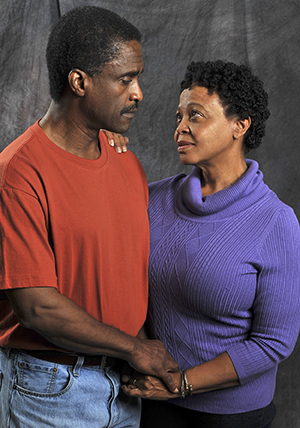Now that you are about to have treatment for cancer, you may have concerns that you want to share. If you do want to talk, you may not know how to start. These ideas may help.
If you prefer privacy
It is your right to decide if and when you will talk about your cancer and treatment. During this time:
-
Think of yourself. Take some time to absorb what you know before discussing it with others. You can even practice or write down what you want to discuss.
-
Other people may want to talk before you are ready, especially people who are close to you. Let them know if you do not want to talk yet.
-
Some families encourage being open, and others do not. You may want to find people on the outside who you’re at ease talking with.
-
Talking to a person who is not as close to you may be more helpful right now. This may be a counselor, social worker, or support group.
-
Don’t withdraw from friends and family if you are finding it hard to talk. No matter how much you decide to share with them, they can be a great source of comfort.
-
Let family and friends know how comfortable you are about them sharing information about your cancer and treatment with others.
-
You might find it helpful to schedule a daily or weekly time to talk.
If you want to talk
Maybe you sense that the people in your life want to know more about what’s going on with you. Or maybe you feel that sharing your situation with others will help you to work through your own feelings. Find time to talk that is free from distractions, when both of you aren't rushed. Here are some tips that will help prepare you to talk.
Be open and honest
People will be more willing to help if they are aware of what you are going through. Talk openly and honestly about your condition, its treatment, and how you are feeling, both positive and negative. And if people offer, talk about how they can help you. Make a list of things you need help with. Some people may be able to drive you to see your healthcare provider or help with child care or work. Or maybe you need help with odd jobs around the house, yard work, housecleaning, or food shopping.
Ease their awkwardness
People may be afraid to say or do something wrong. Assure them that showing they care is helpful. And let them know that there may be no perfect thing to say. Tell your friends and family specific ways they can encourage and support you.
Expect different reactions
People will respond in different ways. Some may seem angry, fearful, or frustrated. Others may refuse to hear any more about your cancer. There are people who may seem too upbeat or use humor to cope. And some may share their own experiences with cancer, including advice and suggestions. Understand that each of them means well. People often don’t know what to say to someone with a serious illness.
Advice to give to family and friends
-
Let them know if you do not want to be pressured to talk.
-
Let them know if you feel angry about the situation and not to take it personally. When you feel angry, let them know that it helps when they listen.
-
Let them know that encouragement such as, “Don’t worry. Everything will be fine,” can feel like empty statements. If they don't know what to say, tell them it's OK to say just that.
-
Let them know when you need help. This may mean giving you rides to appointments. Or helping out with housework and errands.
Featured in


